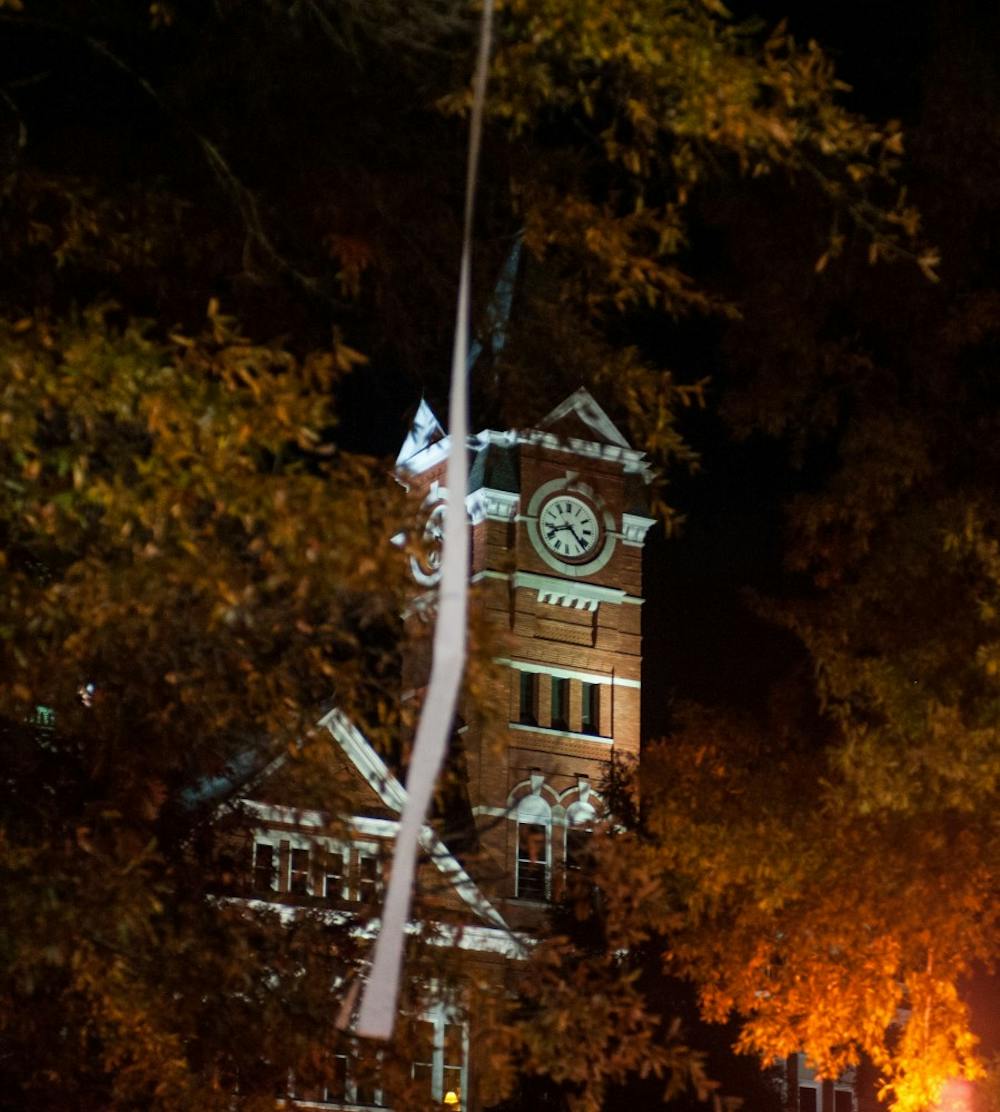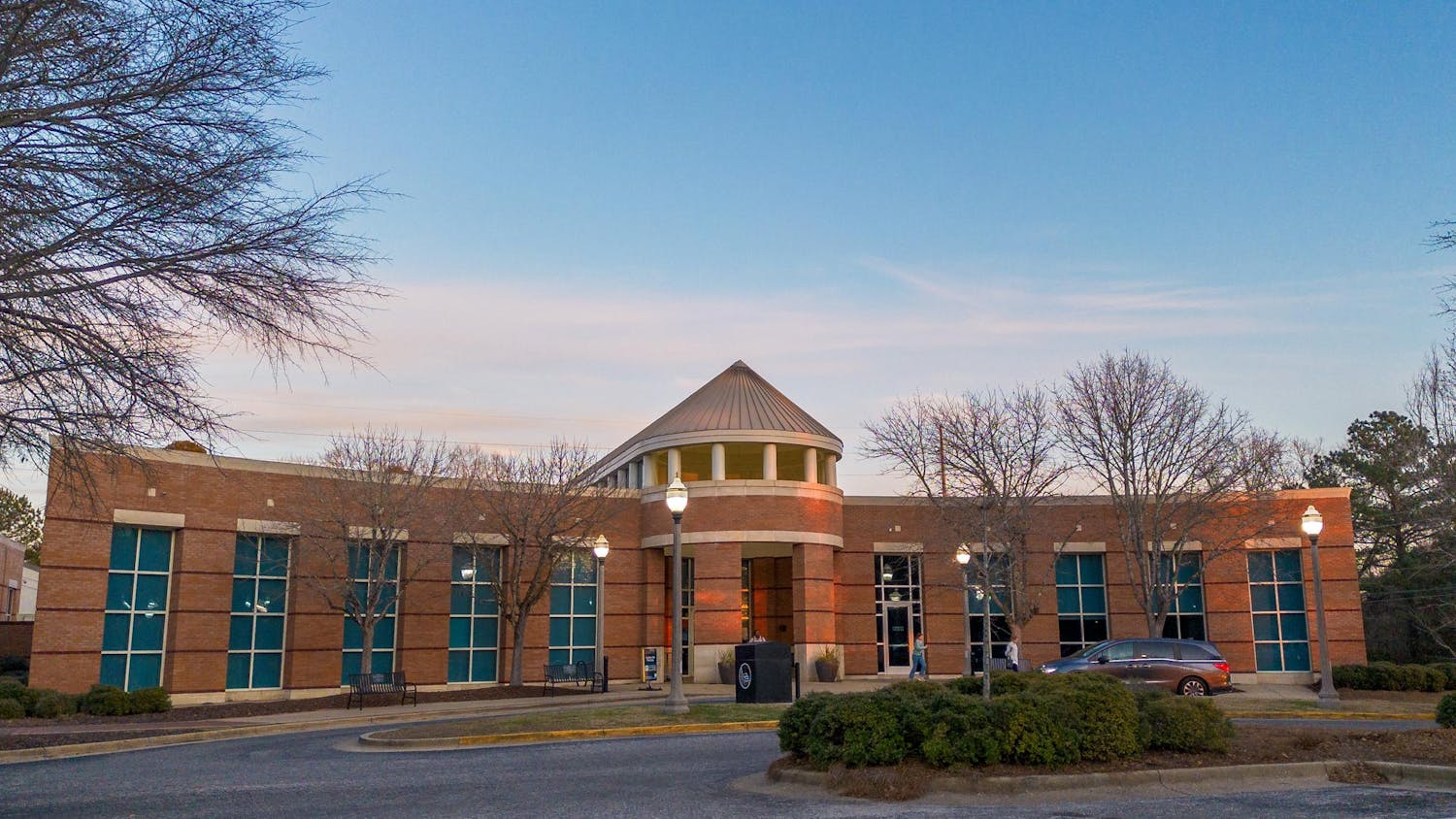On October 30th, 2019, The Auburn Plainsman published an article revealing that a College of Education faculty member, Bruce Murray, has repeatedly shared homophobic and transphobic messages on social media.
As noted in the article and in a statement that we as the Critical Studies Working Group released on October 31st, these issues exist beyond Bruce Murray. Homophobia and transphobia have long existed on Auburn University’s campus, leading to its consistent ranking by The Princeton Review as one of the most unfriendly campuses for LGBTQ+ people in the United States.
As a group of faculty, staff, and students who are committed to the critical study of education and to understanding how educational agents/institutions contribute to systems of oppression, we believe it is important to address these issues.
Namely, it is time for Auburn University, and specifically, the College of Education, to take a stand to support LGBTQ+ students, staff, faculty, and community members. With this call in mind, we have asked to meet with university leadership, as well as members of the College of Education administrative team.
As a group, we have crafted a list of action items that we believe are important next steps to address the long-standing issues that LGBTQ+ people face at Auburn University and within the College of Education. Importantly, these action items must be considered in relationship to other issues of diversity, knowing that legacies of oppression at Auburn render those from multiple minoritized communities (e.g., LGBTQ+ people of Color, LGBTQ+ people with disabilities) most vulnerable.
We are publishing this list in The Auburn Plainsman as a way to keep ourselves and the institution that we love accountable to create a community where all students can thrive.
You will find that this list includes action items that we commit to take, together with those that we see necessary to address on an Auburn University and College of Education level. It also includes signatures from other concerned individuals within the College of Education. We hope that this letter signals to students from all communities that we are advocating for an Auburn family that is just and equitable to those from all minoritized backgrounds. We also hope that you will stand with us as we continue to fight to make Auburn a better place for all.
REQUESTS:
Auburn University
- Issue a public, immediate statement denouncing the transphobic, homophobic, and racist language highlighted in the October 30th Plainsman article.
This statement should affirm Auburn University’s commitment to serving and affirming LGBTQ individuals.
Additionally, the statement should outline how Auburn University is going to engage in action steps to address the institution-wide legacies of transphobia, homophobia, and racism.
- Implement the chosen name and pronoun feature through the Banner system by Fall 2020.
- Engage students, staff, and faculty in public forums about LGBTQ+-related resources that are available at benchmark institutions to see how they can be implemented at Auburn (e.g., gender-inclusive housing, gender-inclusive bathrooms, trans-affirming health care policies, and legal support).
- Bring together a working group to discuss the creation of an LGBTQ+ center on campus and the staffing of student affairs professionals dedicated to LGBTQ+ issues.
- Dedicate a specific page on the Auburn University website that discusses resources available at Auburn, the surrounding area, and nationally that affirm the presence and inclusion of LGBTQ+ students, faculty, staff, and community members.
This webpage should have a statement from university administrators supporting Auburn University’s commitment to serving LGBTQ+ individuals.
- Issue an official statement on what academic freedom and freedom of speech mean to the university and how these freedoms relate to LGBTQ+ experiences on campus.
Furthermore, faculty and administrators should receive training on topics of academic freedom and freedom of speech as it relates to supporting minoritized communities.
- Create institutional structures that show explicit and sustained attention to equity and justice-oriented scholars, especially scholars from minoritized groups, during future faculty job searches.
This same attention should also be given in staff and administrator searches as well.
Positions should be created with salary and resource compensation levels that meet or exceed regional norms and are sufficient to recruit and retain these employees.
- Direct additional funding for student groups focusing on equity and justice work and minoritized communities.
- Direct additional funds for faculty work (e.g., research and outreach) focusing on equity and justice work and minoritized communities.
College of Education
- Issue a public, immediate statement denouncing the transphobic, homophobic, and racist language highlighted in the October 30th Plainsman article.
This statement should affirm the College of Education’s commitment to serving and affirming LGBTQ individuals.
Additionally, the statement should outline how the College of Education is going to engage in action steps to address college-wide legacies of transphobia, homophobia, and racism.
- Publicly release the findings of the College of Education Climate Survey orchestrated last academic year and discuss its relevance to the recent issues brought up in the Plainsman article
- Host a town hall meeting with students, staff, and faculty about The Plainsman article and related issues.
At this town hall meeting, the findings from the aforementioned College of Education Climate Survey should be shared.
- Incorporate a required presentation during the upcoming College of Education Dean search where candidates will discuss their plan to advocate and integrate equity and social justice issues into the college.
- Design a structure where promotion and tenure decisions include how teaching, research, service, and outreach related to issues of equity and social justice. This structure should include a review of teaching, teaching materials, teaching philosophy, etc.
- Require that each faculty member must have their in-class and online teaching reviewed with special attention to how they engage issues of equity and social justice.
- Collaborate with other colleges to locate and create a list of critical scholars across campus.
- Create institutional structures that show explicit and sustained attention to equity and justice-oriented scholars, especially scholars from minoritized groups, during future faculty job searches.
This same attention should also be given in staff and administrator searches as well.
Positions should be created with salary and resource compensation levels that meet or exceed regional norms and are sufficient to recruit and retain these employees.
- Direct additional funding for student groups focusing on equity and justice work and minoritized communities.
- Direct additional funds for faculty work (e.g., research and outreach) focusing on equity and justice work and minoritized communities.
- Collaborate with university administration to address the institution-wide concerns listed above.
Critical Studies Working Group
- Faculty affiliates of the Critical Studies Working group commit to continuing to advocate for LGBTQ+ individuals, as well as other minoritized groups, by:
Pushing forward for a university-wide chosen name and pronoun option to be both implemented in Fall 2020 within Banner and other information systems.
Creating and collaborating with other university offices (e.g., the Biggio Center and Office of Inclusion and Diversity) to orchestrate training for faculty, staff, and students about gender identity and gender-inclusive practices.
Generating a public listing on our website about the ways that the Critical Studies Working Group has been/continuing to work toward equity and inclusion for queer and transgender communities. This list will include links to resources we have created or collected that will be freely available.
- Contingent upon additional financial support from the College of Education (e.g., release time or research funding), the Critical Studies Working Group would contribute to these initiatives by:
Planning and implementing a day-long symposium on issues pertaining to queer and transgender communities in educational disciplines.
Inviting scholars who are leaders in queer and transgender issues in education to offer distinguished lectures in the Fall and Spring of 2020.
Providing workshops specific to College of Education faculty and staff about considerations relating to sexuality and gender identity in teaching.
Offering consultation to redesign existing educational coursework to include a stronger consideration of LGBTQ+ identities and experiences.
Signed by the Critical Studies Faculty Affiliates:
Carey E. Andrzejewski
Associate Professor, Educational Foundations
Hannah Baggett
Assistant Professor, Educational Research
Mike P. Cook
Assistant Professor, English Education
Sara B. Demoiny
Assistant Professor, Elementary Education
Antonio A. Duran
Assistant Professor, Administration of Higher Education
Crystal E. Garcia
Assistant Professor, Administration of Higher Education
Evelyn A. Hunter
Assistant Professor, Counseling Psychology
Laura Parson
Assistant Professor, Administration of Higher Education
Karley A. Riffe
Assistant Professor, Administration of Higher Education
Ryan Schey
Assistant Professor, English Education
Kamden K. Strunk
Associate Professor, Educational Research
Leonard D. Taylor, Jr.
Assistant Professor, Administration of Higher Education
Nancy E. Thacker
Assistant Professor, Counselor Education
Jesus A. Tirado
Assistant Professor, Elementary Education
Individuals signing in support of the list of actions are listed below.
Susan Bannon
Associate Professor and Director, Learning Resources Center
Jason C. Bryant
Assistant Clinical Professor, Educational Leadership
Sherrica S. Bryars
IT Specialist
Megan Burton
Associate Professor, Elementary Education
Vicky Cardullo
Associate Professor, Elementary Education
Jim Ellis
IT Specialist
Jung Won Hur
Associate Professor, Library Media
Lisa Kensler
Professor, Educational Leadership
Jada Kohlmeier
Professor, Social Science Education
Joni Lakin
Associate Professor
Audrey M. Lowry
Multimedia Specialist
Angela Love
Associate Professor, Early Childhood Education
Filien Luiten
Multimedia Specialist
Martina P. McGhee
Assistant Clinical Professor, Elementary Education
Lisa Simmons
Assistant Research Professor, Center for Evaluation
Lucretia O. Tripp
Associate Professor, Elementary Education
Sara Wolf
Associate Professor, Library Media
Benjamin T. Arnberg
Ph.D. Candidate
Andrea L. Beall
Graduate Student
Jordan T. Beckum
Graduate Student
Jasmine S. Betties
Graduate Student
Trey M. Collins
Graduate Student
Matthew A. Cox
Graduate Student
Elizabeth A. Devore
Graduate Student
Ciera A. Dorsey
Graduate Student
Payton D. Hoover
Graduate Student
Katelyn Hope
Graduate Student
Abigail L. Jones
Graduate Student
Allison J. Kam
Student
Wiebke Kuhn
Graduate Student
Wilson S. Lester
Graduate Student
Margaret E. Mastrogiovanni
Graduate Student
Dawn Morgan
Graduate Student
Garry Morgan
Graduate Student
Katie Morgan
Graduate Student
Ariel L. Steele
Graduate Student
Christia M. Stein
Graduate Student
Jessica A. Weise
Graduate Student
Do you like this story? The Plainsman doesn't accept money from tuition or student fees, and we don't charge a subscription fee. But you can donate to support The Plainsman.





